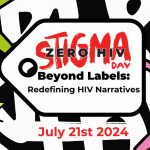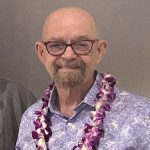What’s the most helpful thing anyone has said to you over your years living with HIV?
When I was diagnosed in December of 1995, I had so much uncertainty about my life and my children. I did not envision a future living with HIV. A peer educator supervisor reached out to me and said, “It’s going to be OK. You do have a future and you can live a long healthy life with HIV. I’d like to help you learn how.” I believed her, and that day I walked away a different person.
What change or development in your treatment for HIV has most affected your life—for better or worse?
Early in my diagnosis I sat in my doctors’ office and refused to leave until he addressed questions about my HIV regimen. He not only answered my questions, but also gave me Internet and literary resources. I received my first POZ magazine, and now I could self-educate and read about people like myself.
What is your refuge from thinking about and dealing with your health?
Reading and spending time with people I love—especially my children and grandchildren. They have unconditional love for me.
What one thing has most aided your survival, and how difficult is it to overcome stigma?
I used to count my years because of my fears, now I want to make my years count.
My faith by far has kept me sane through it all. Two scriptures I quote are: Psalms 118:17: “I shall not die but live, and declare the works of the Lord,” and Philippians 4:13: “I can do all things through Christ which strengthened me.”
Giving back to the community also helps me. I’ve stayed involved and started a women’s monthly support group three years ago. Life has come full circle (as in, circle of life in The Lion King). I now supervise peer educators. My early experience taught me how important it is to give emotional support not just at the time of diagnosis but through a person’s life, whenever they need it. We need to be able to meet people where they are.
Overcoming stigma is a journey, and we’re all at different stages. I speak at organizations, schools and churches and educate people about HIV. I believe stigma is dispelled when we talk about it. Stigma is often the fear of the unknown.
Do you think there will be a cure in your lifetime—and if so, will you benefit from it?
Yes, I do. Yes, I’ll benefit whether I’m around or whether those lives that I’ve been blessed to touch are around. I’ve taught them how to stay healthy emotionally and physically.
What advice would you give to someone newly diagnosed?
Be gentle with yourself during this time. No one deserves to be infected with HIV—not you, and not the person who may have infected you. You’re going to be OK. Don’t get comfortable and focused on dying, because you have a lot of living to do.







Comments
Comments